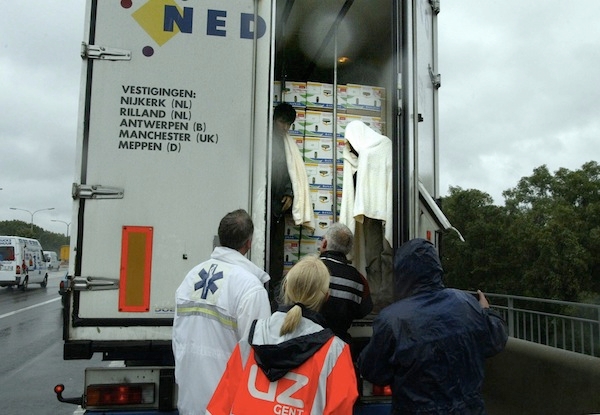Slowly but surely, British court cases are revealing a once great nation of abolitionists to be a shadow of its former self. We often celebrate the nineteenth century anti-slavery movement and its precious victory. We hail their achievement and honour our Parliament’s noblest hour.
But like weeds in a neglected garden, slavery has returned. Its roots remained intact – inherent in humanity’s darkest weaknesses. Today, it is aggressive and hidden. It lives in the shadows of Britain’s cities, towns and villages. And as this morning’s Centre for Social Justice report reveals, too often it thrives uncontested.
In the hands of international bureaucrats the problem has become better known as ‘human trafficking’. But just like ‘collateral damage’, these words mask the terror, injustice and nature of abuse inflicted on those who are its victims.
Across and within UK borders, vile child and sexual exploitation, forced labour and domestic servitude trap people in terrible torture. Enslaved in cauldrons of abuse, many are threatened with rape, death or brutal attacks on their families back home at the slightest hint of rebellion. There are growing numbers of British-born victims too. School girls moved around the UK at weekends – raped numerous times a night – and back in the classroom on Monday. This is a modern day underworld.
Behind closed doors, these victims are voiceless and petrified. Most, of course, are not free to walk away. And those who can often don’t, fearing immediate arrest or deportation. And those who do escape receive inadequate support.
We are losing the battle. Ministers and officials are clueless about the scale of this exploitation, largely because the national identification system is not trusted by those who are supposed to use it. Police officers, social workers, health professionals and prison governors regularly fail to recognise slavery victims when they come face-to-face with them. Police officers arresting a female victim who had escaped from a brothel because she didn’t have a passport is one such example of this.
And when someone does manage to pick the right fight against the criminals rather than the victims, our messy legislative framework stops them in their tracks.
It is the blind leading the blind. This breeds political complacency and cosiness. Many in authority defend the status quo and argue all is well. But palpably it is not. And it is irresponsible to pretend otherwise.
William Wilberforce once famously stood up in the House of Commons and said: ‘You may choose to look the other way, but you can never say again that you did not know.’ How pertinent those words remain in 2013. So who is prepared to stand up and say the same today?
Christian Guy is Managing Director of the Centre for Social Justice.





Comments